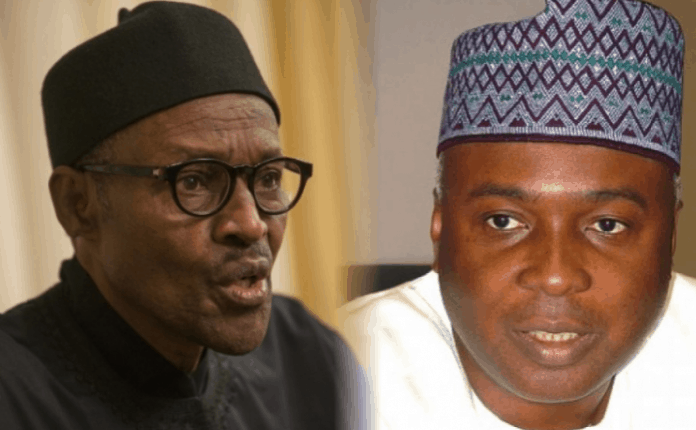BREAKING: Why Buhari Threatened and Tried to Blackmail Me

Former Senate President Bukola Saraki has revealed that his resistance to President Muhammadu Buhari’s excessive borrowing was the main reason for the harassment and intimidation he faced during the Buhari administration.
Speaking at the 2025 Reunion Gala of the King’s College Old Boys Association (KCOBA) in Houston, Texas, Saraki stated that his insistence on legislative independence made him a target of political persecution.
“The legislature under my leadership was silenced, harassed, assaulted, bullied, and blackmailed,” Saraki said. “We were like orphans. The elite and ordinary people kept quiet, were nonchalant, and stayed aloof.”
According to Arise TV, Saraki argued that the legacy of executive intimidation during his tenure has weakened the legislature, leaving his successors unwilling to challenge the presidency for fear of facing similar treatment.
“Subsequent leadership of the National Assembly would rather be a rubber stamp and play dumb because they do not want to go through the harrowing experience that Saraki went through,” he noted.
A Strained Relationship with Buhari
Saraki served as Senate President from 2015 to 2019—a period marked by continuous tension with the Buhari-led executive. His emergence as Senate President, despite the All Progressives Congress (APC) endorsing another candidate, deepened the rift. Legal cases, including allegations of false asset declarations during his time as Kwara State governor, followed soon after, leading many to believe he was being politically targeted.
His defection from the APC to the opposition Peoples Democratic Party (PDP) in 2018 only worsened the feud, culminating in a failed attempt by the APC to impeach him.
Saraki claimed that Buhari’s administration “deliberately frustrated” important legislative initiatives and policies, adding that his refusal to compromise with the executive made him a target.
“I could have agreed with everything the Presidency under Buhari wanted and cut deals with them all the way. I would have been a good ally,” he stated. “But we stood our ground.”
Saraki decried Nigeria’s systemic failure to nurture institutions, saying the country continues to rely on “strong men and women” rather than building resilient democratic frameworks.
“These sad developments are indications that our institutions are weak,” he said. “Instead of building institutions, we are building strong individuals.”
He criticised the prevailing mindset among professionals who view politics as “dirty” and unworthy of their engagement. According to Saraki, this attitude has kept competent Nigerians out of leadership, further deepening the country’s governance crisis.
“We should stop seeing politics as too dirty or too demanding,” he urged. “Your voice, your resources, and your influence can help good candidates emerge and succeed.”
